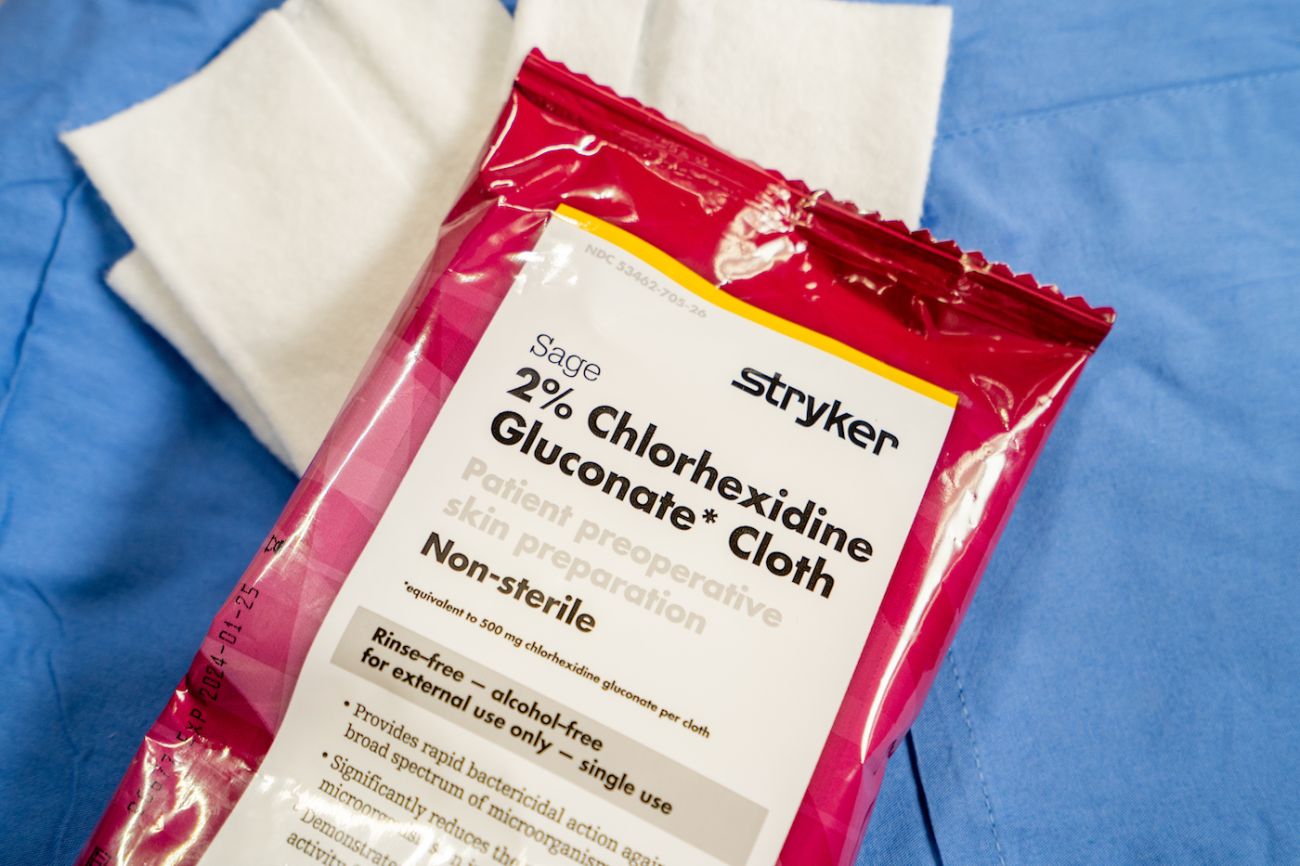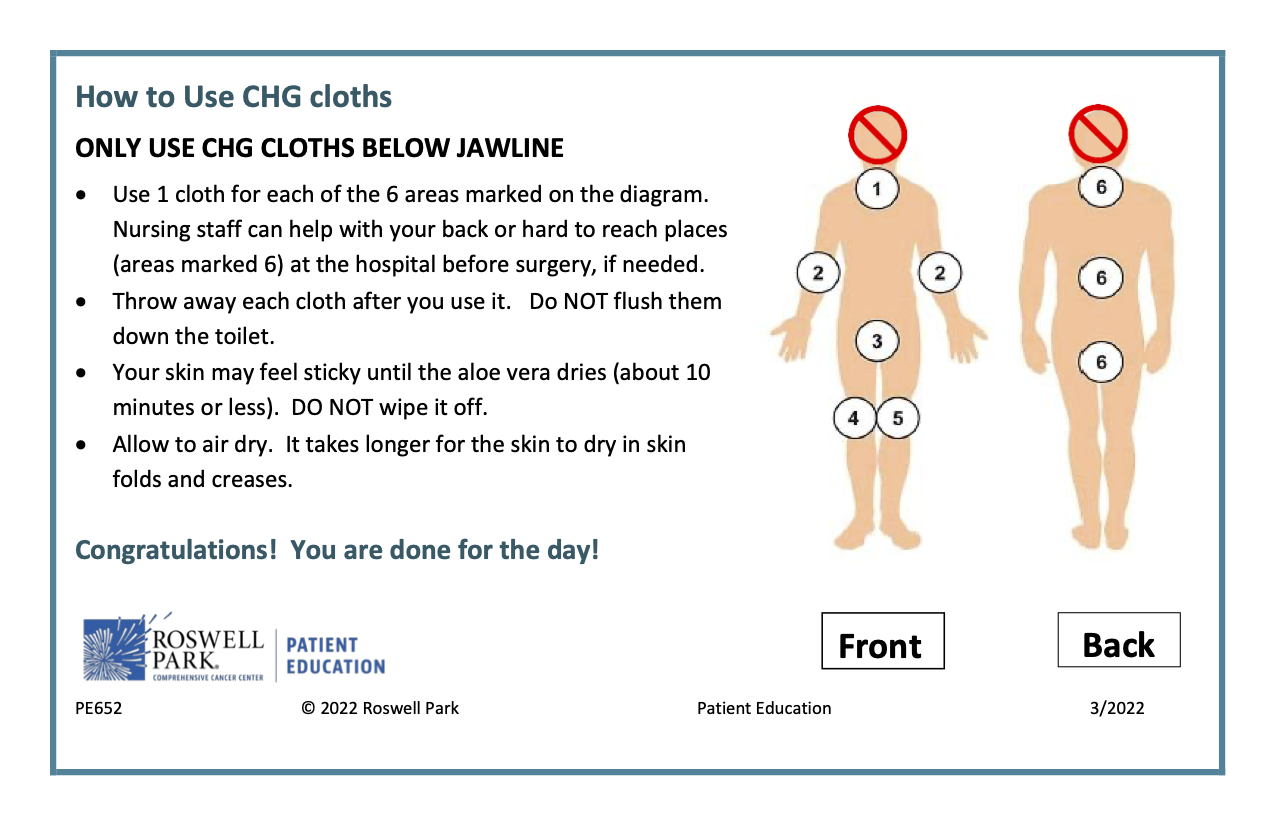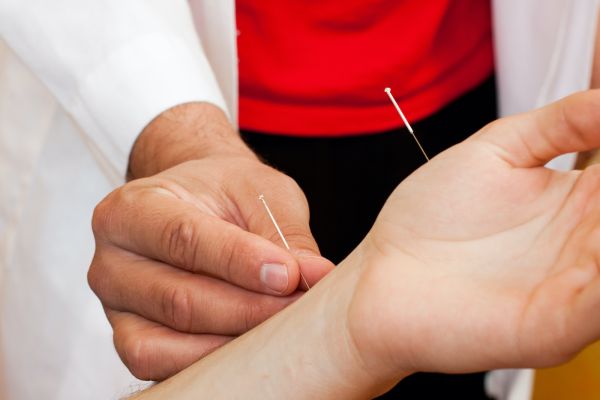Antimicrobial cloths help decrease infection risk
Having surgery at Roswell Park Comprehensive Cancer Center? Your instructions may include specific steps regarding how to bathe before surgery and use special bathing cloths.
These cloths contain chlorhexidine gluconate, usually referred to as CHG. This antimicrobial is used to clean the skin before surgery. It kills potentially harmful germs on the skin and inhibits other germs from growing. Decreasing the number of germs on the skin on and around the surgical site also decreases the risk of getting an infection after the operation. While there are CHG antiseptic solutions to wash with, the CHG cloths are a convenient alternative. The cloths contain aloe vera, which you may notice on your skin until it dries.
If you have ever had an allergic reaction to CHG, you should not use CHG solution or cloths.
Washing using CHG cloths
These are general instructions. The CHG cloths and an instruction card will be provided to you by your nurse or healthcare provider. If your provider gives you different directions, always follow your doctor’s instructions.
- You must take a shower the morning of your surgery.
- Wash your hair as usual with your regular shampoo. Rinse your hair and body thoroughly to remove any shampoo residue.
- Wash your face with regular soap and water only.
- Wash your genital area with regular soap and water only.
- Thoroughly rinse your body with warm water from the neck down.
- Pat yourself dry with a clean towel.
- Do not apply powders, deodorants, lotions, creams, hair products or makeup.
- After your body has dried for 30 minutes, wipe down your entire body (except your face and genital area) with CHG cloths following the directions on the CHG Bathing Cloths card.
- Throw each cloth into the garbage as you use it. Do not flush down the toilet.
- Allow to air dry.
- Your skin may feel sticky until the aloe vera dries (about 10 minutes). It takes longer for the skin to dry in skin folds and creases.
- Dress in freshly washed clothing.
*When air-dried, some CHG remains on the skin to inhibit the growth of any new germs. Do not rinse; it will wash away this protective effect of the CHG.
Do NOT use CHG cloths:
- above your neck or on your face or head
- on your anus or genitals (vagina or penis)
- where the skin is broken, cut, scraped or open in any other manner
If you must put your hand in your mouth after washing with CHG cloths, rinse your hands with water first (to remove the CHG).
CHG is safe to use on lines, tubes and medical devices. If you have any bandages or dressings on your body, you can use the CHG cloth up to the edges of the dressings. If you have an occlusive dressing (a dressing that provides a tight seal against air, fluids and contaminants), you can use the cloths right over the dressing.
Never miss another Cancer Talk blog!
Sign up to receive our monthly Cancer Talk e-newsletter.
Sign up!Are there any risks or side effects from using CHG?
Side effects are very rare and few people have any problems with CHG. Possible side effects include mild skin rash or dryness. As with any product used on the skin, an allergic reaction is possible. Stop using the cloths and call your doctor immediately if your skin:
- gets itchy
- develops welts, rash or bumps
- feels like it is burning
Risks are minimal when the cloths are used correctly and CHG is not used on sensitive areas (face and genitals) or areas with broken or irritated skin. Let your doctor know if you have any serious skin problems or if your skin has ever had a reaction to CHG.




